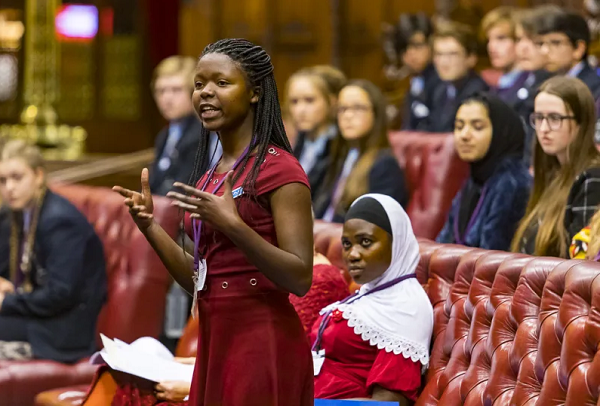
More girls taking leadership positions in school - Study reveals
A study conducted by Right to Play Ghana has revealed that girls are now developing leadership skills and consequently taking up positions in schools because of the opportunities teachers are giving them.
“So, we now have schools with girls as the school prefects. Hitherto, this was not the case but now we are seeing this happening in our classrooms,” it said.
Advertisement
The Education Specialist of Right to Play Ghana, Kwabena Gao, who disclosed this at a training programme on play-based learning organised for journalists and public relations officers in Accra and Ho said, both boys and girls had their capabilities and capacities and once teachers were able to realise and harness them, both genders were able to come out with the potential that they had.
He said in order to raise boys and girls who would be ready to compete in the global world, there was the need for the country’s education system to look at how it could empower all children.
Implication
Touching on the implication for more girls developing leadership skills, Mr Gao said it would help the country to, in the future, have more women in leadership positions who would also serve as role models to other girls.
He said when girls were educated and empowered they were able to grow up to support and contribute towards the socio-economic development of the country as well as determine the appropriate time to go into relationships.
Mr Gao disclosed that they had also realised that teachers were now gender responsive, which meant that teachers were conscious of the fact that both boys and girls were in the classroom so equal opportunities should be offered them.
Following the revision of the curriculum in 2019, some creative pedagogies, including play-based learning, were introduced to teaching and learning and to help journalists and PROs to understand this approach to learning; how it was done in the classroom and be able to capture them appropriately in their reportage that the workshop was organised.
Play-based learning
In his presentation on play-based learning, the training and capacity building specialist of Right to Play Ghana, Lawrence Offei, defined play-based learning to be learning while having fun, adding that the characteristics of play-based learning were that it must be socially interactive, iterative, actively engaging, joyful and meaningful.
He said in their teachings, teachers should choose games that took into consideration the cultural background of learners, their religion and ethnic group to make learning easier for children.
Study
Giving further details of the study that was conducted in 2021, the Monitoring and Evaluation Specialist of Right to Play, Kwarteng Frimpong, said it was done in schools in the five districts in the three regions that Right to Play operated, namely Greater Accra, Volta and Northern regions.
He said the study further revealed that more teachers were not using corporal punishment during lessons, adding that teachers who were more likely not to use corporal punishment during lessons increased from 74.1 per cent in 2018 to 87.8 per cent in 2021, compared to non-project schools which had 58.8 per cent.



